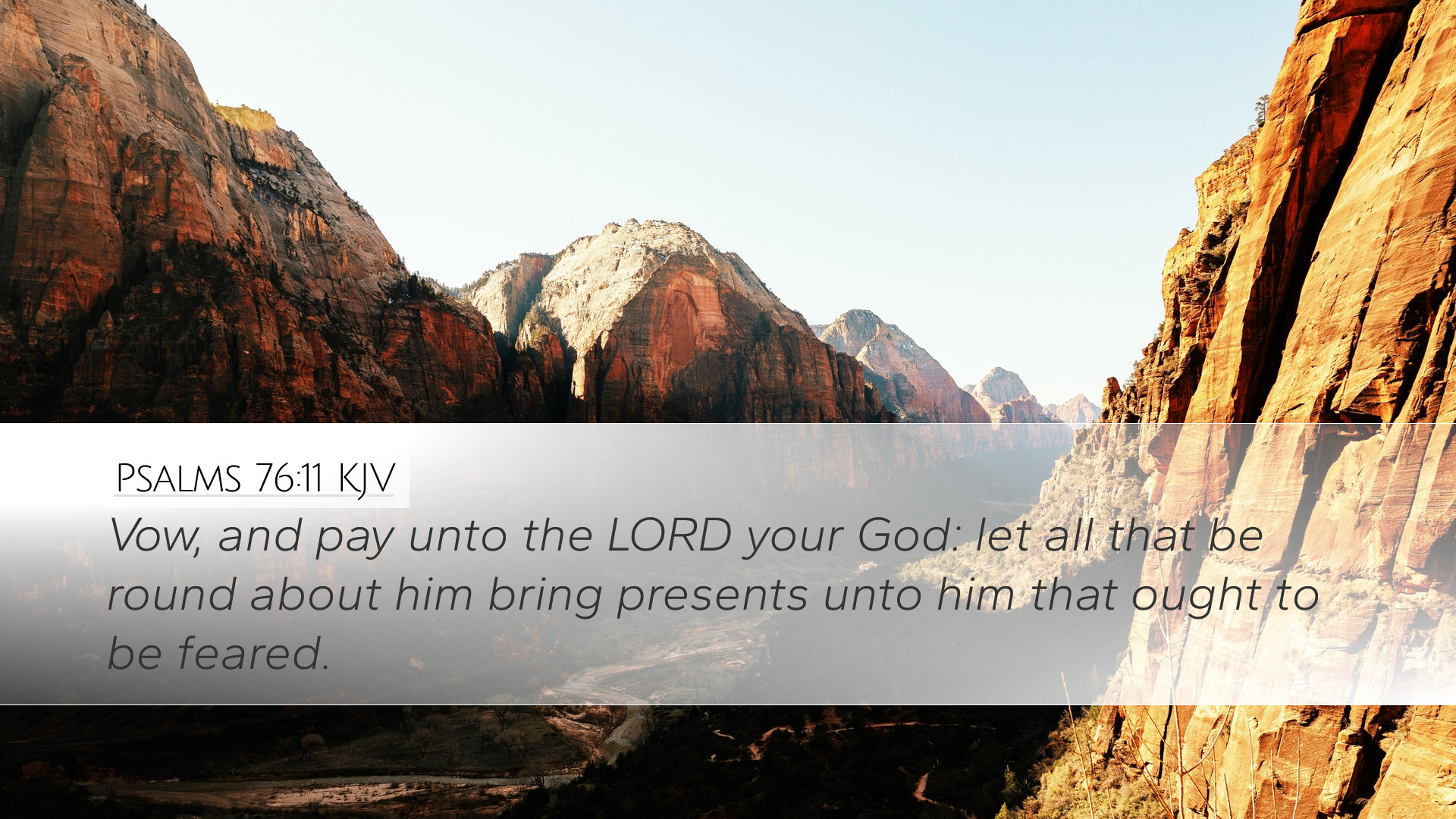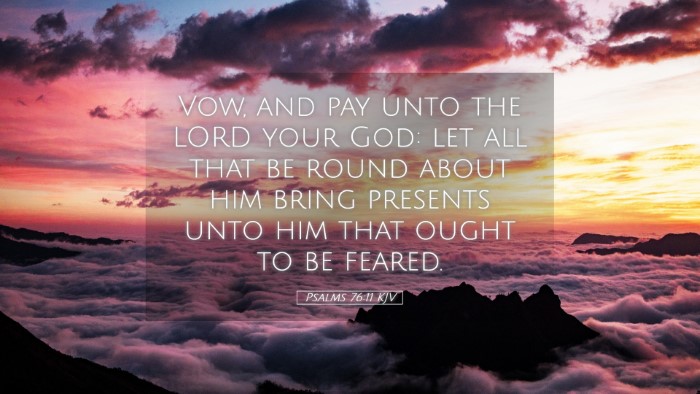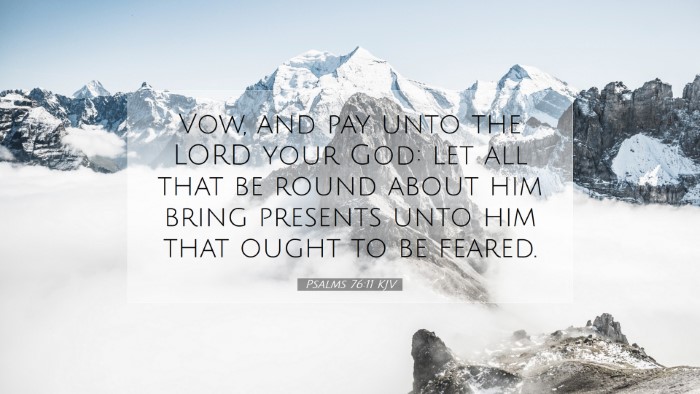Bible Commentary on Psalms 76:11
"Vow, and pay unto the LORD your God: let all that be round about him bring presents unto him that ought to be feared." - Psalms 76:11
Introduction
This verse from Psalms 76 is a call to action for believers, an encouragement to recognize God's sovereignty and the appropriate response to His greatness. Following are insights drawn from various public domain commentaries to elucidate the meaning and implications of this verse.
The Nature of Vows
Matthew Henry emphasizes the significance of vows made to God as a demonstration of devotion and commitment. The unfolding of the human heart often reveals a deep need for acknowledgment of divine authority. Vowing requires both sincerity and the intention to fulfill one's promises.
Albert Barnes notes that vows are a means of expressing gratitude and reverence. When one vows to God, it reflects the sense of obligation that stems from recognizing His own favors. The notion is that these vows should not be mere words but should also lead to tangible actions in our lives, serving as a guide to our relationships with the Divine.
Adam Clarke further specifies that the act of vowing is an invitation to worship and reverential intimacy with God. He posits that through the act of making vows, individuals are reminded of their reliance on God and their duty to honor Him.
The Fear of the Lord
The phrase "that ought to be feared" prompts reflection on the fear of the Lord—a recurring theme in scripture. Matthew Henry articulates that this fear is not one of dread but of reverence and profound respect. It acknowledges God's holiness and justice, cultivating a heart posture that desires to obey Him.
Albert Barnes asserts that fearing God is foundational for a genuine relationship with Him. This reverence encourages believers to respond appropriately to God's supremacy and majesty, leading them to offer correct adorations and presents as expressions of honor and gratitude.
Adam Clarke adds that this fear of God brings comfort and assurance to the believer. When one acknowledges God's position in the universe, it fosters peace and trust, knowing that God is not only sovereign but also a protector of His people.
Bringing Presents to God
The exhortation to "bring presents unto him" reinforces the concept of offering gifts as acts of worship. Matthew Henry illustrates that the essence of these presents is not limited by materialism; rather, it entails giving oneself wholly to God as an offering of praise.
Albert Barnes expands on this by stating that such offerings may also include sacrifices of praise, goods, or even good works, all intended to honor God. True worship involves the heart's engagement in the act of providing these offerings.
Adam Clarke posits that these presents reflect not only our obedience but also our joy in God's benevolence towards us. In the ancient context, presents can imply acknowledgment of God's blessings, thus reinforcing a community of faith that glorifies God collectively.
Application for Believers
For the contemporary believer, Psalms 76:11 prompts an evaluation of how one approaches God. Matthew Henry reminds us that our vows and gifts should embody our love and commitment to God, rather than be mere obligations.
Albert Barnes urges believers to consider what they can offer God in response to His grace. This could involve acts of service, financial donations to the church, or a commitment to pray and study scripture more diligently.
Adam Clarke highlights the personal nature of such commitments, encouraging believers to renew their vows regularly as a demonstration of their ongoing relationship with God and an acknowledgement of His unmatched power and presence.
Conclusion
Psalms 76:11 serves as a critical reminder for all believers regarding the importance of recognizing God's holiness and the necessity of approaching Him with appropriate reverence and offerings. It beckons us to commit ourselves fully to God, honoring Him through our vows and the gifts of our lives.
In this framework, students of theology, pastors, and scholars alike are invited to reflect on their own offerings—both in spirit and in truth—as they engage in the worship and service of the Lord. As we heed the call to "vow and pay unto the LORD your God," may we continue to cultivate a faith that worships God in sincerity and reverence, always looking forward to the fulfillment of our commitments.


